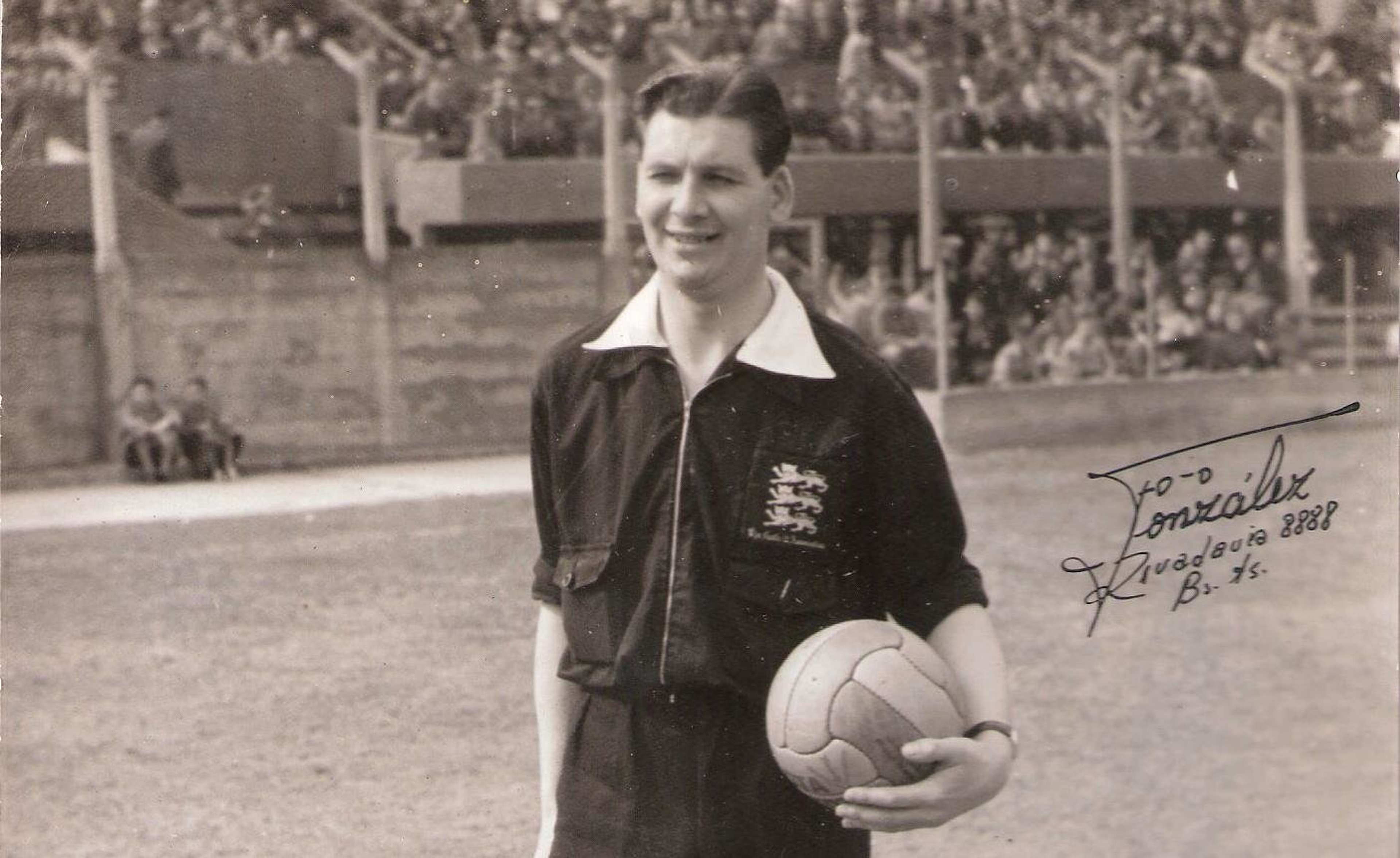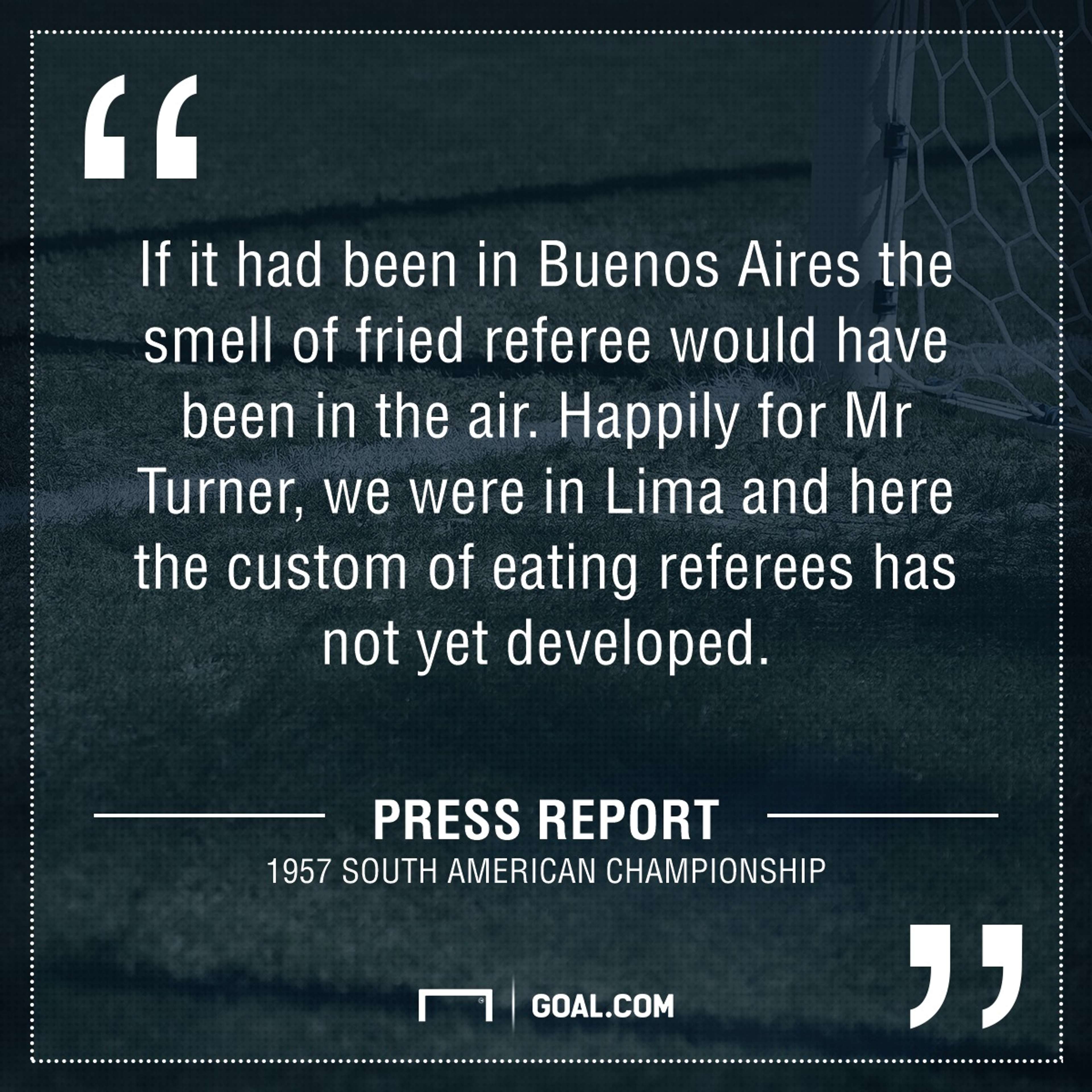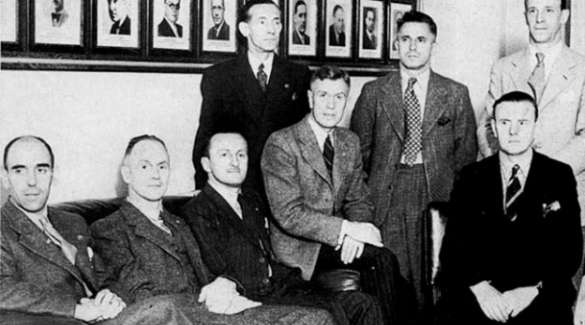COMMENT
On April 3 1957, Argentina and Brazil clashed in the South American Championship to decide who would be crowned king of the continent. The glory went to the Albiceleste, who triumphed with all-time superstars Enrique Omar Sivori, Humberto Maschio, Antonio Angelillo and others in sparkling form to down Brazil 3-0 in Lima’s packed Estadio Nacional.
WATCH: Life ban for ref assault
With Sivori, Maschio and Angelillo on one side and Didi, Pepe and Evaristo valiantly battling for the Selecao, the teamsheet is instantly familiar to football historians. But there is one name that seems rather out of place. The referee was the distinctly Anglo-Saxon Robert Turner, an English interloper in this festival of Latin skill. Turner was one of several European officials who took up whistleblowing duties in Peru, part of an experiment to bolster the Argentine and South American game with imported referees.
While Argentine football was enjoying its golden era before and after the Second World War, efforts to control events on the pitch and in the stands were suffering. Faced with constant challenges to their authority, crowds liable to turn violent at the slightest provocation and the ever-present suspicion of bribery and other illicit pressures, local referees were widely suspected of acting in favour of the nation’s biggest teams. In 1937, Englishman Isaac Caswell was hired by the Argentine Football Association to stop the rot, and was plunged straight into the deep end as he made his debut in a game between Racing Club and Ferro.
First impressions of Caswell’s performance were encouraging. Newspaper La Nacion opined that “his display showed such massive differences with local referees that certain aspects cannot go unnoticed. The difference is decidedly favourable to the English referee. Instead of the excessive and irritating use of the whistle some local officials make, Caswell used it sparingly, and let certain infractions pass that were of little importance because he used the discretion allowed by the rulebook”. Caswell stayed just three years before returning to England, but in 1948, after Osvaldo Cossio survived an attempted lynching at the hands of Newell’s Old Boys fans, the AFA resumed imports, bringing over four Englishmen, three Scots and a Welsh referee to impose some semblance of control in exchange for a monthly wage of $85.
Mourinho has failed Shaw with attacks
By 1950, the number of British referees in Argentina had risen to 14 and, in 1954, Robert Turner was one of four new faces to make the trip to Buenos Aires. At 34, the Halifax-born official was the youngest of the group and, despite officiating at First Division level, had seen his career somewhat overshadowed by another Halifax native, Arthur Ellis. His trajectory in England had stalled through a bizarre incident in an FA Cup game, as his son Philip explained.
 Philip Turner
Philip Turner
“In that particular game the ball got stuck up a tree and, since there was no replacement, the game was delayed for almost an hour while they tried to retrieve it,” Philip told Goal. “My father got the blame for not preparing properly, and his career suffered for that.” Keen to try again in a different clime, Turner had the chance to referee in Bermuda and New Zealand as well as Argentina, but eventually took up the AFA’s offer to take up the whistle in Primera División.
Foreign or local, life was not easy for referees. Countless matches were postponed or cancelled when matters got out of hand, with the 10 feet barbed wire fences and moats around pitches often not sufficient to keep out irate masses. In 1955, seven minutes towards the end of a match between Estudiantes and River Plate, William Elliott gave a penalty to the visitors. Estudiantes forward Rolando tried to slip an orange in front of the ball, only to be discovered by the referee who somewhat unwisely threw it at the striker’s head. Incensed by the ‘attack’ on one of their own, fans came streaming onto the field, causing the game to be abandoned and awarded to River.
Xavi warns Barca over Messi renewal
Turner remembers one particularly tense match directed by his father causing a near-riot, and leading to a policeman being stationed in front of their house in the suburb of Martinez for no less than a week. “We used to bring him tea and coffee, he became like a member of the family,” he recalls. A further match, directed this time by John Meade in 1950, ended with the entire starting XIs of Vélez Sarsfield and Huracán arrested and spending two nights in jail when a game descended in total chaos.
Despite the risk of serious injury or worse if they made the wrong call, what is clear from accounts of the period is that the visiting referees were held in the highest esteem. Contemporary newspaper reports at the time make constant references to the officials’ fairness and regard for the rules, as well as their impartiality. In his book Passion of the People? Tony Mason includes a glowing review of Turner’s work during the 1957 South American Championship, praising the abundance of what the newspaper obscurely calls “phlegm”:
“Turner brought to the task all the phlegm of the islands. To arrive recently in a strange country, a Latin American country which has a reputation for violence; to begin by actually controlling a game in which the local team takes on a country to which it is historically antagonistic – Ecuador – and to disallow, in fifteen minutes, two goals for the local team, is a spectacular case of British phlegm.
“If it had been in my country, commented a Uruguayan, the smell of fried referee would have been in the air, or in Buenos Aires, we added. Happily for Mr Turner, we were in Lima and here, to now, the custom of eating referees has not developed.” It must be said that Turner had better luck than Ronald Lynch, who after awarding a match-winning penalty to Brazil against the hosts was set upon by the Peru team, and had to be smuggled out of Lima and put on a plane back to Buenos Aires for his own safety.

While most referees made only a short stopover across the Atlantic Ocean, Turner made Buenos Aires his home. The AFA decided to end the importation of referees in 1958, rescinding the contracts of those still in the country and trusting future games to locally-born officials.
Turner stayed with his young family – Philip was a teenager at the time of arrival, while his younger brother was just a toddler when he accompanied his mother to Lima to watch Turner Sr. direct Argentina and Brazil – “They had to stay in the stadium until absolutely everyone had left and then left with my father,” Philip laughs. When his contract ended Robert stayed, working as a schoolmaster during the week and refereeing amateur fixtures across Buenos Aires at the weekend.
The AFA eventually relented and rehired Turner, who continued to officiate at the top level until, in November 1964 and at the age of 45, he took the whistle for the last time professionally when overseeing a home win for Estudiantes over Banfield. He was the last foreigner to referee an Argentine top-flight match, and remained in the country until 1976 when the growing political and social upheaval that would lead to the usurping of power by a military dictatorship forced him to return to England.
He may hold only a footnote in the rich history of Argentine football, but the example of his and other Britons’ firm, fair officiating helped to bring order to a place where the game is played and followed with a passion almost unmatched elsewhere on the planet.


.jpg?auto=webp&format=pjpg&width=640&quality=60)

.jpg?auto=webp&format=pjpg&width=640&quality=60)